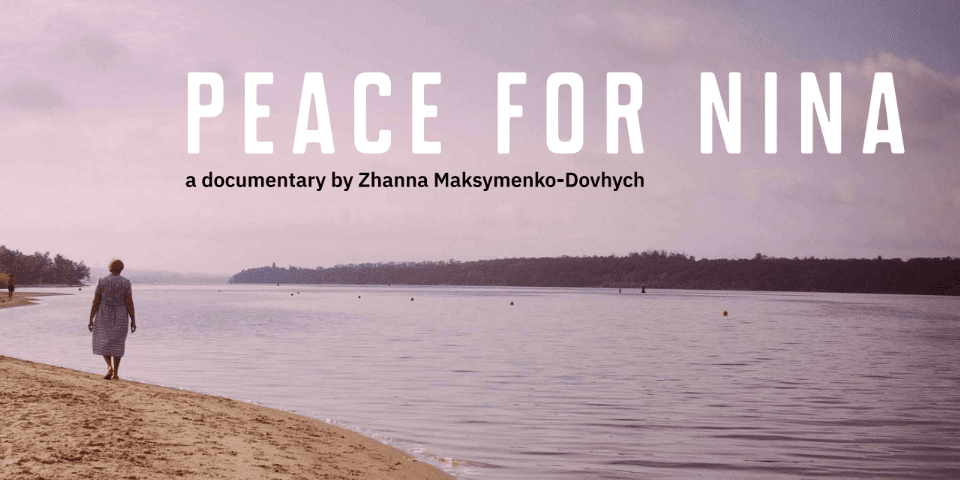When all our hearts are broken, perhaps the story of one grieving mother can move the world to act.
In recent months, many Ukrainians unexpectedly found themselves becoming fighters, rescuers, journalists and more, mobilising at home and abroad to protect the people and home they love from the unprovoked and excessively brutal Russian onslaught.
Film and storytelling are essential tools in the Ukrainian battle, keeping a spotlight on the need for solidarity and humanitarian support, and pushing political leaders to demand and deliver immediate peace and long-term justice.
International communities have rallied round Ukrainian filmmakers as many shifted gears to become investigative journalists. Storytellers of all kinds are courageously gathering evidence of war crimes and exposing painful truths to the world with immediacy. But not all are called to this path. Ukraine also has, and needs, filmmakers who tell a different kind of story.
The upcoming documentary Peace for Nina by Ukrainian director Zhanna Maksymenko-Dovhych shares the extended justice-seeking journey of Nina, a Ukrainian mother whose son was murdered by Russian mercenaries eight years ago, when the war in Ukraine first began. Nina’s story confronts us with the reality that there are ‘already forgotten’ war-time victims. It spotlights the lasting implications of war-time violence and the importance of current peace-seeking and justice-seeking efforts to coalesce together.
Nina’s story exposes the barriers to war crime prosecutions: the men who killed her son are dead and will never face trial. Sadly, this may be the case for many other Ukrainian victims and families, if perpetrators are dead or shielded by the Russian state. Walking with Nina as she comes to terms with this reality, we sit with her in the question – if justice isn’t possible, how can war victims find peace?
Nina’s son may not get the justice he deserves, but through ‘Peace for Nina’, he and Nina together can impact the lives of many others who are suffering at Russian hands.
War crime trials in Ukraine are now already starting. As efforts intensify to investigate and prosecute Russian soldiers and leaders at national and international levels, Nina’s story can help spur on and coordinate these so that they operate effectively. She can give courage to other mothers and families to fight the long fight for their loved ones. And she can make sure that justice-seeking efforts address what can be achieved for victims where criminal prosecution is not a viable possibility.
Nina represents thousands of Ukrainians who wish for all those responsible for inhumane Russian war crimes to be held accountable. No, one story can’t stop a war. But spurred on by courageous women like Nina, we can keep telling stories until the world changes, wars end and we all find lasting peace.


